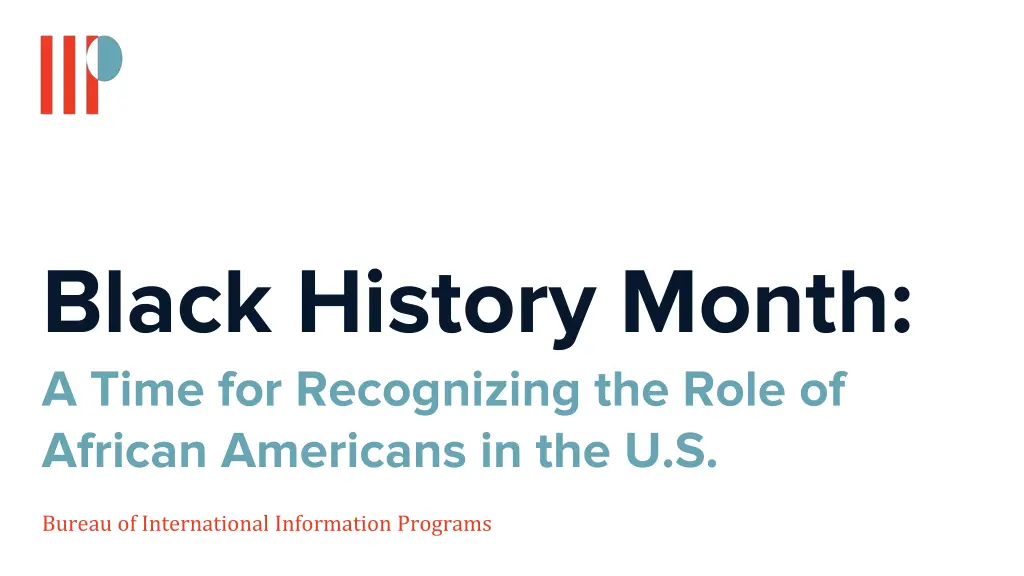
Recognizing African American Contributions in Black History Month
Explore the significance of Black History Month in recognizing the achievements and contributions of African Americans to American society, from historical figures like Dr. Martin Luther King, Jr. to modern celebrations and events.
Uploaded on | 1 Views
Download Presentation

Please find below an Image/Link to download the presentation.
The content on the website is provided AS IS for your information and personal use only. It may not be sold, licensed, or shared on other websites without obtaining consent from the author. If you encounter any issues during the download, it is possible that the publisher has removed the file from their server.
You are allowed to download the files provided on this website for personal or commercial use, subject to the condition that they are used lawfully. All files are the property of their respective owners.
The content on the website is provided AS IS for your information and personal use only. It may not be sold, licensed, or shared on other websites without obtaining consent from the author.
E N D
Presentation Transcript
Black History Month: A Time for Recognizing the Role of African Americans in the U.S. Bureau of International Information Programs
Black History Month | Reflection National African American History Month is a call to each and every citizen of our great land to reflect on the cultural, scientific, political, and economic contributions of African Americans, which are woven throughout American society. We remember, learn from, and build on the past, so that, together, we can build a better and more prosperous future for all Americans. ~ President Donald J. Trump African Americans marching in Montgomery, Alabama in 1965.
Black History Month | What is it? Black History Month--also called African American History Month--is an annual celebration of achievements by African Americans and a time for recognizing the central role of blacks in U.S. history. Dr. Mae Jemison, First African-American Woman in Space
Black History Month | When did it start? Black History Month grew out of an effort started in 1926--nearly 50 years after the passing of the 13th Amendment of the U.S. Constitution ending slavery. Historian Carter G. Woodson, grandfather of Black History Month
Black History Month | How do we celebrate? Many U.S. institutions and businesses celebrate the month of February through events, exhibits, and discussions about the role of African Americans in American culture and history. Exhibit at the National Museum of African American History & Culture
Who are some notable figures in American history? Bureau of International Information Programs | Connecting People With Policy
Black History Month | Notable Figures Dr. Martin Luther King, Jr. was a prominent leader during the Civil Rights Movement in the 1950s and 1960s. He called for non-violent resistance and pushed for peace and equality.
Black History Month | Notable Figures Harriet Tubman was an abolitionist and conductor on the Underground Railroad, and worked directly with the U.S. military during the Civil War.
Black History Month | Notable Figures Benjamin Banneker was an astronomist, mathematician, and urban planner. He is notable for developing accurate almanacs for farmers, surveying the land to become Washington, DC and encouraging Founder Fathers to abolish slavery.
Black History Month | Notable Figures Katherine Johnson is a mathematician most known for her work at NASA. Her calculations helped make the first U.S. manned spaceflight a success.
Black History Month | Notable Figures Jesse Owens was an Olympic Gold Medalist in the 1936 in Berlin, Germany. He broke 5 world records in the track & field competitions, defying Hitler s theory that the Aryan (white) race was superior.
The End Bureau of International Information Programs | Connecting People With Policy






















